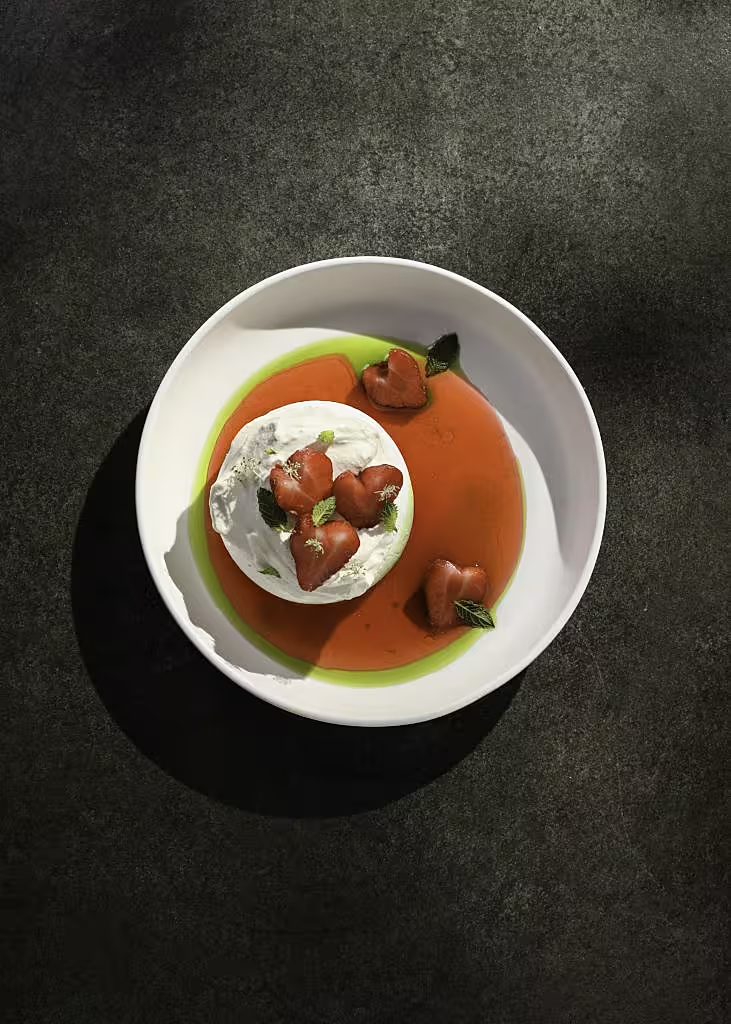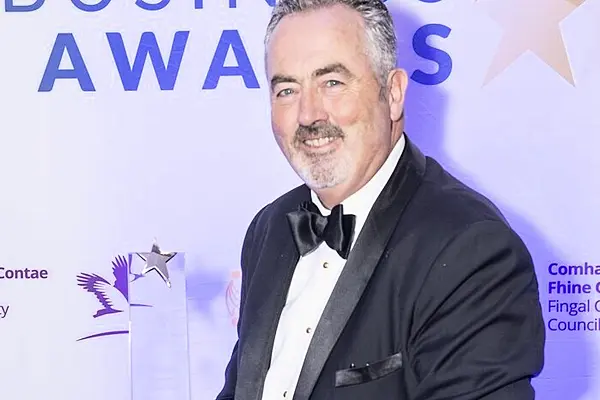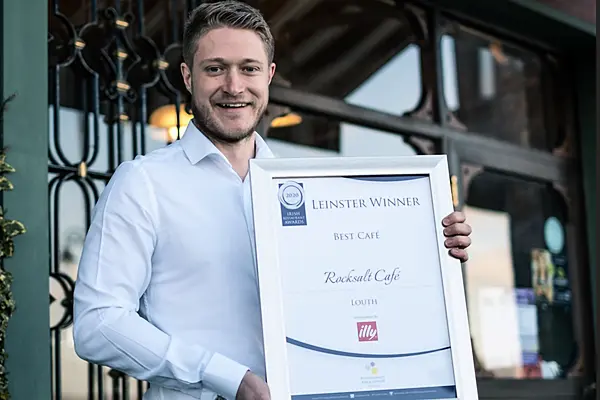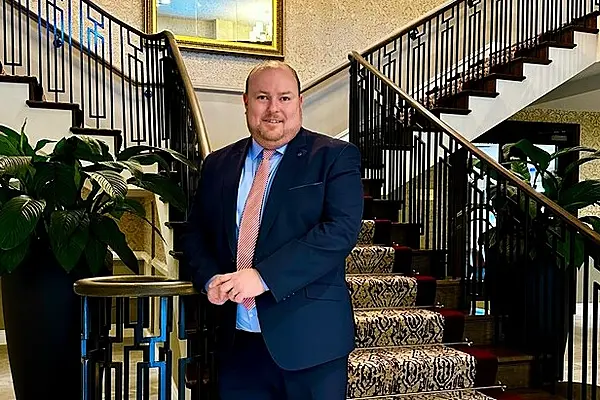Denis Cotter is the chef, restaurateur and author who opened the iconic Cafe Paradiso in 1993. His hope was to create modern vegetable-based cuisine that could stand alongside ‘normal’ restaurants – a place where people went to eat pleasurable, exciting, modern food. Thirty years later, Paradiso has become a beloved part of Cork’s food culture.
This article was originally published in the Summer 2023 issue of Hospitality Ireland Magazine, in July of 2023.
Cotter recently published Paradiso: Recipes & Reflections, a beautiful 216- page hardback cookbook featuring a collection of over 160 recipes. The book acts as a snapshot of where Paradiso is now.
Denis, what first drew you to food and cooking?
Vegetarians have to learn to feed themselves, and I quickly came to enjoy cooking and finding new ingredients and recipes – this was in my early twenties. Before that, I had no particular interest in food, other than being a supposedly picky eater as a child. I got interested in restaurants while spending time on the road as a bank inspector.
When did you first realise that you wanted to do this professionally?
While trying to think of a way out of banking. I felt too old at 25 to retrain in something else or to go back to university, and I thought food was something I could just throw myself into without formal training. That was correct, but I didn’t realise how long it would take to learn that way!
Tell us about your background – where you grew up, studied, etc.
I grew up in Macroom, Co. Cork, went to university for three months, worked in a bank for eight years – half of that in internal audit – then left at 25 to go to London, to start working in restaurants.
What was your first big role?
I ran the kitchen in the Quay Co-Op for a few years when I moved back to Cork.
What was that like?
I had no previous experience of running a kitchen, so it was a good learning experience, but, ultimately, frustrating, as I was trying to develop something that wasn’t a good fit for the organisation.
Why did you set up Cafe Paradiso?
To have a space where I could cook how I wanted, and to unshackle vegetarian food from perceptions of health food and negativity.
How did you find that?
It went really well from the start. Cork seemed ready for it, so it was a very supportive place to try new things and learn on the go.
Tell us about Cafe Paradiso – the ethos, food, service, etc.
Paradiso has always been about flavour and pleasure in food, and connections in the food community. We buy from people we like and put ingredients together to make bright, colourful, and intensely flavoured food. Paradiso opened in 1993, when fusion food was taking off – a core idea of which was serving high-quality food and wine in deceptively casual settings. That is still at the heart of Paradiso. We have a very professional and knowledgeable dining-room crew who have the confidence to be relaxed and personal in their work.

What makes a great restaurant?
I’ve only ever had one, so I’m not a general expert, but I think authenticity is key. People can sense when a place is real and true to itself, and so they feel better able to relax into the experience they are being offered. Value, also – no matter what the price level.
Tell us about your new book.
The new book, titled Paradiso, is a marker of where the restaurant is now and a manual for its future direction. The recipes are a mix of new ones and dishes that have been evolving in the repertoire over the 30-year life of Paradiso. As well as the recipes for the main restaurant dishes, there is a comprehensive section with all the larder elements that we use to build flavour. It’s a really beautiful production, with design by John Foley of Bite Design and photography by Ruth Calder-Potts.
What are the changing trends in hospitality – people’s expectations, new elements, etc.?
I honestly don’t eat out enough to know about trends.
Is there a sense that the world has caught up with what you have been doing at Cafe Paradiso for so long?
In some ways, yes. It’s now almost a given that restaurants will try to source locally and seasonally, and the cooking of vegetarian dishes in mainstream restaurants has improved greatly. It used to be that chefs did it reluctantly and almost resentfully, whereas now most young chefs are comfortable working with vegetables. Mind you, given the environmental crisis we are in, it still surprises me that more aren’t moving away from meat completely. For all the improvement in cooking skills and sourcing, it’s as though we’re still stuck in a menu format that depends on meat to be the main focus.
What are the major challenges at the moment?
Unpredictability. Globally, we seem to be lurching from one major crisis to another, with a giant one all the time in the background, so it’s impossible to predict more than a few months ahead.
What are the main opportunities?
Probably the same as the challenges. Given the unpredictability of the world, it’s a good time to just get on with doing something you want to do as well as you possibly can.
Any other plans on the horizon for the next year or so?
No! Paradiso feels like it is at the start of a new era, so I want to gently steer that for the next while, to see where it can go. We have an amazing team, both in the kitchen and the dining room, and I’m interested in what that potential will become.

Denis Cotter
CAFE PARADISO AT A GLANCE:
How many covers (for lunch and dinner)? Forty seats – dinner only – Tuesday to Saturday.
Number of staff members – front and back of house? Six chefs, five dining-room [employees], two kitchen porters, one administrator, one executive chef stroke lightbulb-changer.
Signature dish?
Seasonal vegetables. In summer, tempura squash flowers stuffed with peas and ricotta, with basil sauce, peperonata and polenta.
Read More: Hospitality Ireland Summer 2023: Read The Latest Issue Online!








